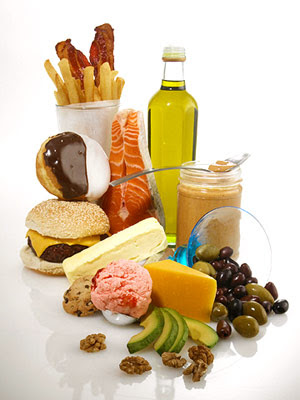Fats
Fats supply energy to the body in highly
concentrated form. Also, some fatty acids are necessary for regulating certain
body functions. Third, fats act as carriers of fat-soluble vitamins (vitamins
A, D, E, and K). Because of these important functions, it is necessary to have
some fats in the diet.
Fats may be classified as saturated,
monounsaturated, or polyunsaturated. These terms reflect chemical differences
in the composition of fats. Cooks do not need to know the chemical structure of
fats, but they should understand their nutritional characteristics and the
foods in which they are found. Many foods contain a combination of these three
types, with one type predominating.
Saturated fats are solid at room temperature.
Animal products—meats, poultry, fish, eggs, dairy products—and solid
shortenings are the major source of saturated fats. Tropical oils such as
coconut oil and palm kernel oil are also rich in saturated fats. Health experts
believe these fats contribute significantly to heart disease and other health problems.
Polyunsaturated fats and monounsaturated fats are liquid at room temperature.
[source: professional cooking sixth edition]

No comments:
Post a Comment